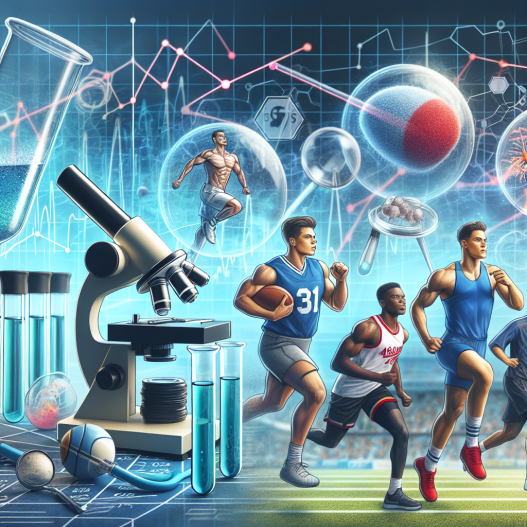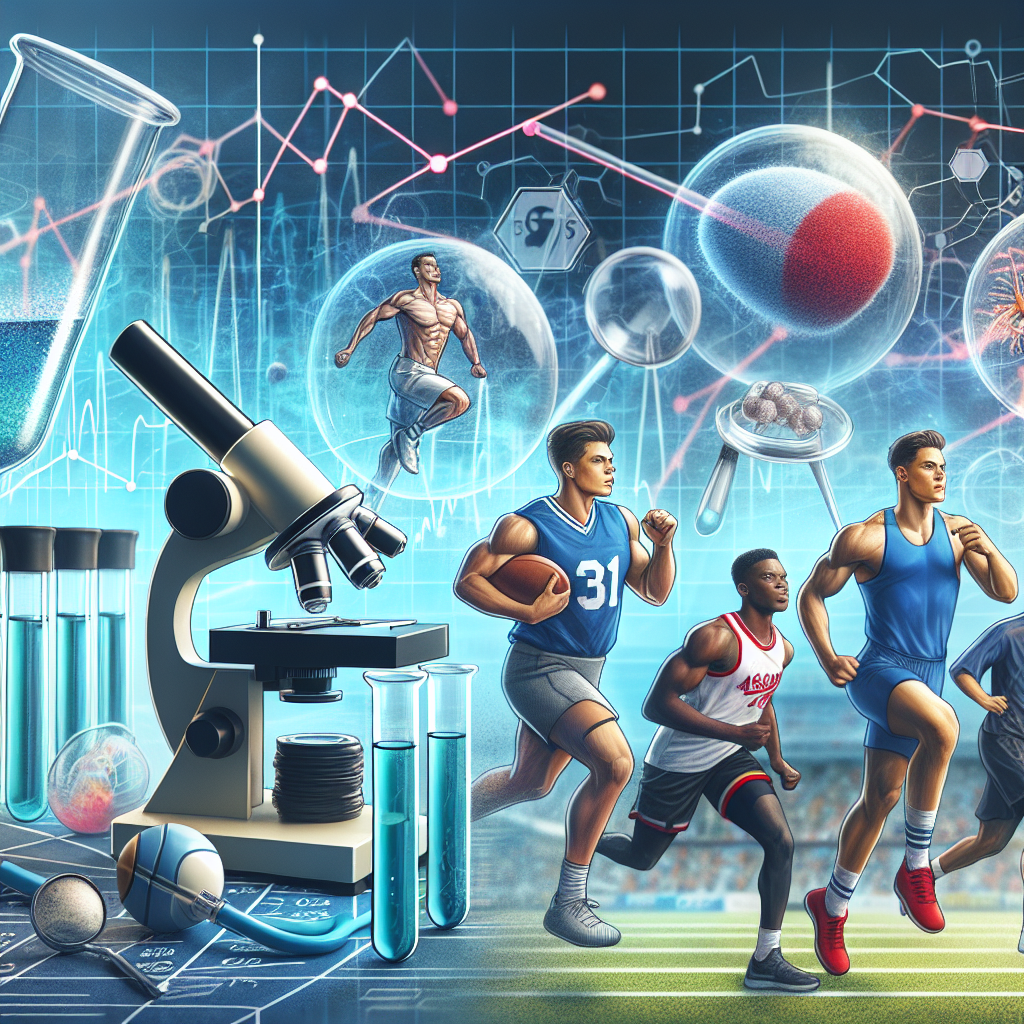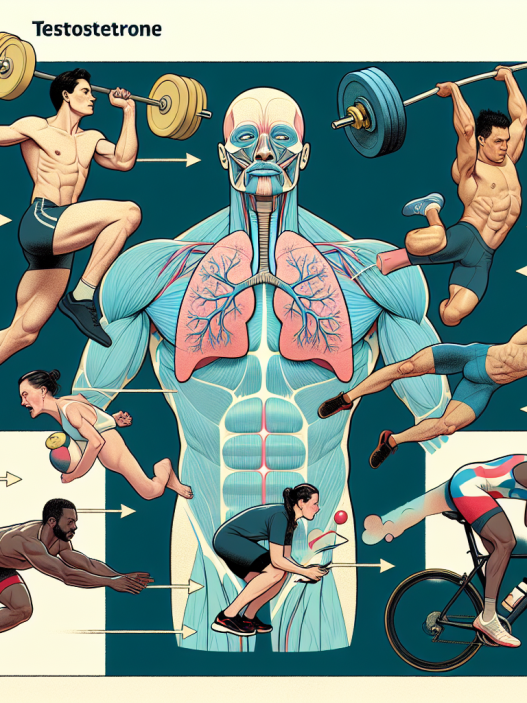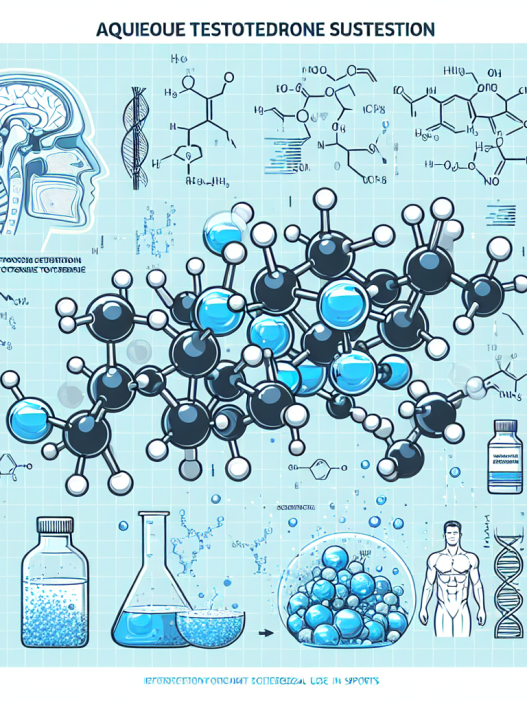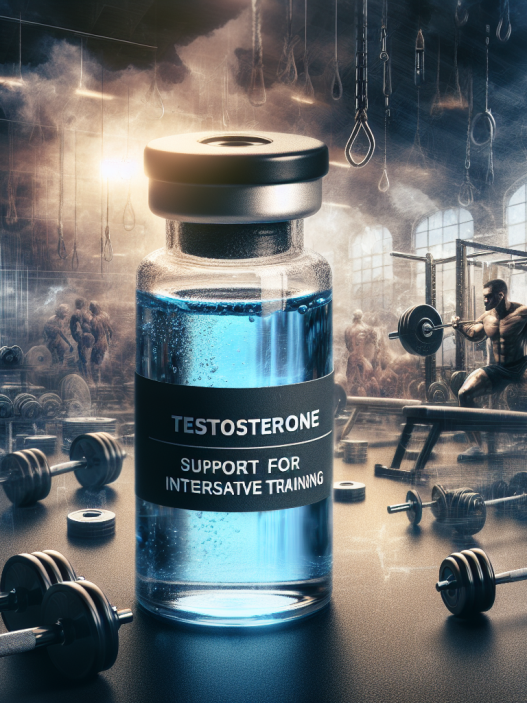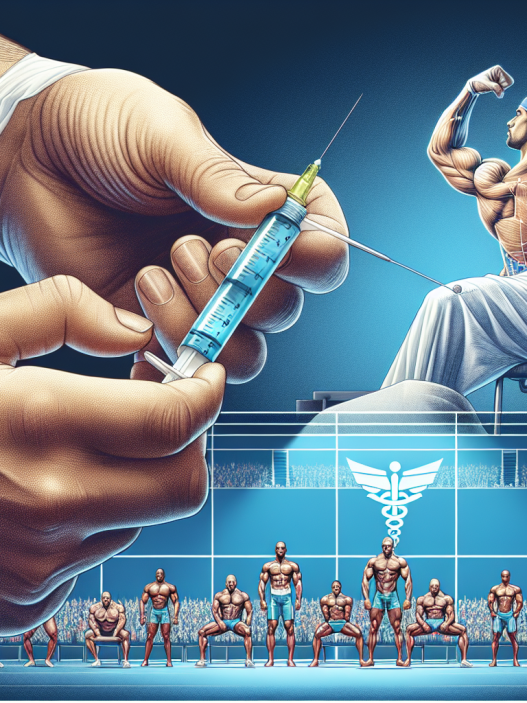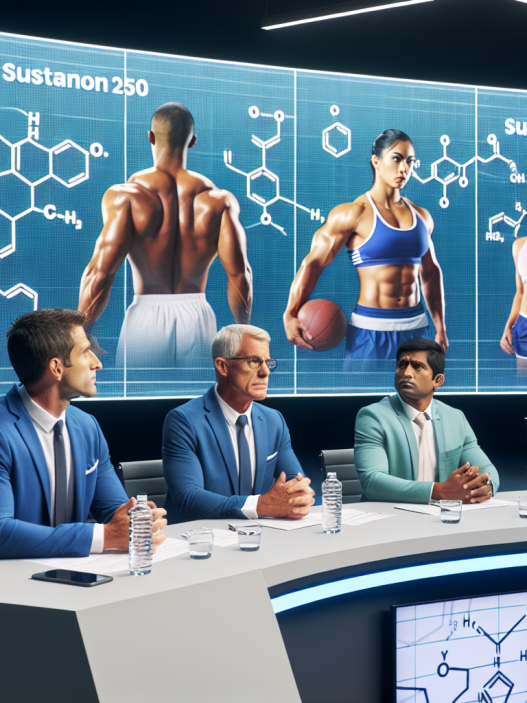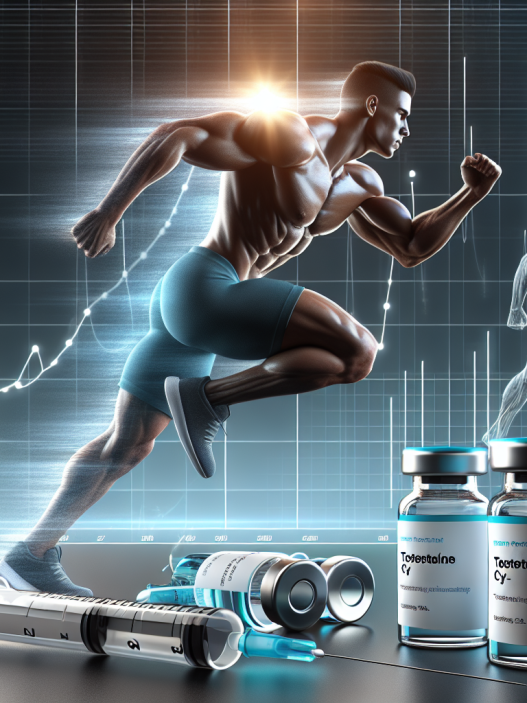-
Table of Contents
The Role of Testosterone in Sports Performance
Testosterone is a hormone that plays a crucial role in the development and maintenance of male characteristics. It is also known to have significant effects on athletic performance, making it a topic of interest in the field of sports pharmacology. In this article, we will explore the role of testosterone in sports performance, its effects on the body, and the controversies surrounding its use in sports.
What is Testosterone?
Testosterone is a steroid hormone produced primarily in the testicles in males and in smaller amounts in the ovaries in females. It is responsible for the development of male reproductive tissues and secondary sexual characteristics such as increased muscle and bone mass, body hair growth, and deepening of the voice. Testosterone also plays a role in the production of red blood cells, sperm production, and sex drive.
In males, testosterone levels are at their highest during puberty and early adulthood, and gradually decline with age. In females, testosterone levels are much lower, but still play a role in maintaining bone and muscle mass, as well as sex drive.
Testosterone and Athletic Performance
The effects of testosterone on athletic performance have been studied extensively, with conflicting results. Some studies have shown that higher levels of testosterone can lead to increased muscle mass, strength, and power, which can improve athletic performance. However, other studies have found no significant correlation between testosterone levels and athletic performance.
One reason for these conflicting results could be the complex relationship between testosterone and other hormones, such as growth hormone and insulin-like growth factor 1 (IGF-1). These hormones work together to regulate muscle growth and repair, and their levels can be affected by various factors such as diet, exercise, and sleep. Therefore, it is difficult to isolate the effects of testosterone on athletic performance.
Another factor to consider is the individual response to testosterone. While some athletes may see improvements in performance with higher levels of testosterone, others may not experience the same effects. This could be due to genetic variations or other factors that influence how the body responds to testosterone.
Controversies Surrounding Testosterone Use in Sports
The use of testosterone in sports has been a controversial topic for many years. In the past, testosterone and other anabolic steroids were commonly used by athletes to enhance their performance. However, the use of these substances is now banned by most sports organizations and considered cheating.
One of the main concerns with the use of testosterone in sports is the potential for unfair advantage. Athletes with naturally higher levels of testosterone may have an edge over their competitors, leading to an uneven playing field. This is especially true in sports where strength and power are crucial, such as weightlifting and sprinting.
Another concern is the potential health risks associated with the use of testosterone. Long-term use of anabolic steroids, including testosterone, has been linked to a range of adverse effects, including liver damage, heart problems, and hormonal imbalances. These risks are even greater when the substances are used without medical supervision.
Expert Opinion
While the role of testosterone in sports performance is still a topic of debate, it is clear that it plays a significant role in the development and maintenance of male characteristics. However, the use of testosterone and other anabolic steroids in sports is not only unethical but also poses serious health risks. As researchers and sports organizations continue to study the effects of testosterone on athletic performance, it is important to prioritize the safety and fairness of sports competitions.
References
- Johnson, A. C., & Bhasin, S. (2021). Testosterone and the Athlete: An Evidence-Based Approach. Current Sports Medicine Reports, 20(1), 1-7.
- Handelsman, D. J. (2018). Testosterone and the Athlete. Sports Medicine, 48(Suppl 1), 9-16.
- Bhasin, S., & Storer, T. W. (2018). Anabolic-androgenic steroids and testosterone precursors: ergogenic aids and sport. Current Opinion in Endocrinology, Diabetes, and Obesity, 25(6), 247-255.
